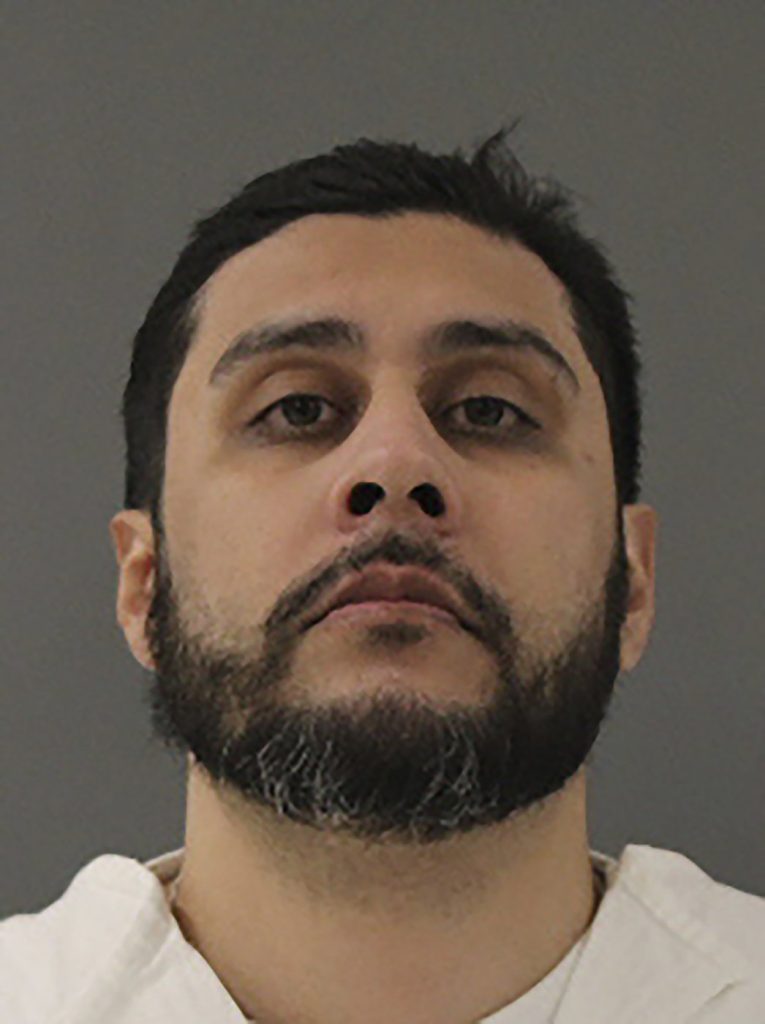HOUSTON (AP) – A Texas man is scheduled for execution on Wednesday for the brutal strangling and stabbing death of a young mother from North Texas over two decades ago. Moises Sandoval Mendoza was convicted of the March 2004 murder of 20-year-old Rachelle O’Neil Tolleson. The prosecution asserts that Mendoza abducted Tolleson from her home in Farmersville, Texas, leaving her 6-month-old daughter alone. The infant was discovered cold and wet but safe the following day by Tolleson’s mother. Six days later, Tolleson’s body was found near a creek.
Mendoza, now 41, is set to receive a lethal injection at the state penitentiary in Huntsville, Texas. Evidence presented during the trial revealed that Mendoza attempted to destroy evidence by burning Tolleson’s body to eliminate his fingerprints, with dental records ultimately being used to confirm her identity.
As Mendoza's execution approaches, his legal team has made a last-minute appeal to the U.S. Supreme Court, seeking to halt the execution after lower courts dismissed previous petitions for a stay. The Texas Board of Pardons and Paroles recently denied Mendoza's appeal to have his death sentence commuted to a lesser punishment.
In their petition to the Supreme Court, Mendoza’s attorneys argue that he was denied effective legal representation during earlier phases of his appeal process. They contend that both his trial lawyer and a previous appeals attorney failed to challenge key testimony from a detention officer, Robert Hinton, which the prosecution used to argue that Mendoza would pose a future danger to society—an essential factor for securing a death penalty verdict in Texas.
According to Mendoza’s lawyers, Hinton provided false testimony, claiming that Mendoza instigated a fight with another inmate while in custody. The attorneys state that the inmate has since claimed in an affidavit that detention officers had encouraged him to provoke Mendoza and that he was later rewarded for doing so. They argue that the jury’s questions during deliberation regarding Mendoza’s “criminal acts while in jail” indicate that the officer’s testimony heavily influenced their decision-making.
However, the Texas Attorney General’s Office has countered that Mendoza's claims of ineffective counsel have already been deemed meritless and insubstantial by a lower federal court. They assert that even without Hinton’s testimony, the jury was presented with substantial evidence of Mendoza’s violent history, particularly against women. This history includes past physical assaults against his mother and sister, as well as the sexual assault of a 14-year-old girl.
The Attorney General's Office emphasizes the public interest in carrying out the punishment, citing that the case has lingered for two decades. They illustrate that the state and victims of crime possess a compelling interest in achieving justice for the guilty.
Details surrounding the case indicate that in the days prior to Tolleson’s murder, Mendoza was present at a party at her home. On the day her body was discovered, Mendoza confessed to a friend about the killing, leading to his arrest when the friend notified the authorities. During questioning, Mendoza allegedly admitted to repeatedly choking Tolleson, sexually assaulting her, and ultimately dragging and stabbing her body before incinerating it.
If the execution proceeds as scheduled, Mendoza would become the third inmate executed in Texas this year, maintaining the state’s position as the most active in capital punishment within the United States. Following Mendoza's case, Alabama is scheduled to execute James Osgood for the 2010 rape and murder of a woman on Thursday.











